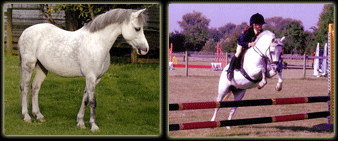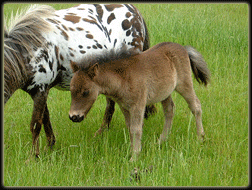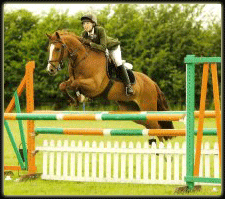|
AU PAIR & HORSEJOBS,
Tel from Irish republic:04844 615106
within the uk 02844615106
eu countries 00442844615106
Au pairs wishing to work with horses can apply to this office for
a different application form then that of au pairs for children.You can also choose to work with horses and children.
Often this work is hard and in all weather and you must have good
experience with horses to avail of these positions.
The pocket money is different from that of au pairs with children
due to the fact that it is outdoors and with animals and different
conditions.
EXPLAINATION OF JOB TYPES.
- Pleasure Horses or ponies.
The majority of positions we offer involve what are commonly
called ‘pleasure’ animals and that is exactly what
they are. Horses and ponies which are part of the family and
are ridden for pleasure in the many and varied events and competitions
throughout the country, this could be hunting, showing, show
jumping, dressage or a combination of all.
- Hunting. (Winter Time Only Oct-Mar)
Fox hunting, Hare hunting (Harriers) and Stag hunting are traditional
in Ireland.
If you have an objection to live animal hunting, it is important
that you say so in your application form. Several hunts now
have 'drag hunting’ whereby a scent is laid down by a
person on horseback which hounds follow and no blood sport is
involved. In stag hunting, the animal is seldom killed but caught
and released. Most ‘horse’ families in the British
Isles take part in some sort of hunting during the winter months.
[ back to top ]
- Racing and Race Horses.
There are two types of racing in this part of the World, (Ireland,
U. K. and France).
Flat racing which is just as it says and is a summer sport
. Positions with flat racing stables require the applicant to
be a certain weight and to have very good riding skills -young
thoroughbred horses can be very difficult to handle and require
quite a lot of experience and knowledge on how to deal with
often nervous and highly strung animals.
‘Jumping’ racing which is called ‘National
Hunt Racing’ (as it evolved from hunting) is a winter
sport. Most of our racing jobs are in National Hunt stables
and would include a lot of riding. The horses are usually older
than their ‘flat’ counterparts and are often more
settled and easier to handle. Good riding skills are still essential
and a good general knowledge of horse care is also very important
in dealing with these animals.

- Riding Schools and ‘Livery’ stables.
We often have jobs in riding schools and ‘livery stables’
which is where individuals keep their horses for their own use.
Many riding schools require ‘working students’ and
will give the applicant riding lessons as part of their job.
These stable can be great fun as there are usually other young
people working there which can add to a good social life.
[ back to top ]
- Stud Farms and Breeding Establishments.

Ireland and England are famous for breeding both native horses
and thoroughbreds. We have many jobs on Stud farms, especially
during the breeding and foaling season which is February to
July but these farms are usually interesting throughout the
year. Young stock is handled and broken during the months of
autumn and winter although not a lot of riding is usually attached
to these positions unless you are good enough to help with the
initial breaking of 2 year olds and 3 year old horses. There
are however, normally several other foreign people working at
the same time which can indicated a good social life. There
is no age restriction with these jobs and all applications are
welcome.
- Competition Stables.
We sometimes have positions with professional stables in show
jumping, dressage, evening and showing. A good standard is expected
at all times in these stables. Sometimes the professional is
willing to give lesson in their chosen horse discipline to ‘working
students’ in part payment of wages. A lot can be learned
in this way which would normally not be available to the average
rider and for those interested in improving their riding skills,
these positions are very educational. However, sometimes there
is not as much riding as one might expect as competition horses
are valuable and many owners do not allow grooms to ride these
highly trained animals - at least not in the beginning.
- Polo Stables.
Both outdoor and indoor Polo is becoming more and more popular
in the British Isles.
Outdoor Polo is a summer sport from April to the end of September
and indoor or ‘arena’ Polo is normally a winter
sport. Working with Polo ponies usually includes a lot of riding
as the horses need to be exercised daily except when they are
playing which is normally at the week end. Polo ponies are extremely
easy to ride, just like American western riding - but be warned
- they wear a lot of protective equipment and bandages etc and
it can take a while to be proficient at ‘tacking up’
a polo pony. There is usually a good social life associated
with the sport of polo.
[ back to top ]
ARE YOU QUALIFIED TO WORK WITH HORSES??
It is ESSENTIAL that you are HONEST about your abilities and experiences
with horses. Attending a riding school for 10 years once a week
can make you a pretty good rider but it might not qualify you to
work with and totally take care of a horse or horses on your own.
Most riding schools have the horses ready for the riders before
they arrive and you may never have been required to catch a horse
in a field, bring it to the stable, feed it, groom it and be totally
responsible for that animals welfare. These things are easy to learn
and most employers are quite willing to teach any skills which you
may not have. Working with horses can be a difficult, back breaking
job which has to be done in all weathers and it is important that
you realise this before you make a commitment to any position being
advertised.
However, working with horses can also be exciting and rewarding
and a really wonderful way of improving your language skills as
well as your knowledge of these beautiful animals and a great way
of seeing a culture different from your own.
For further information contact Jane Kidd at
[ back to top ]
|




